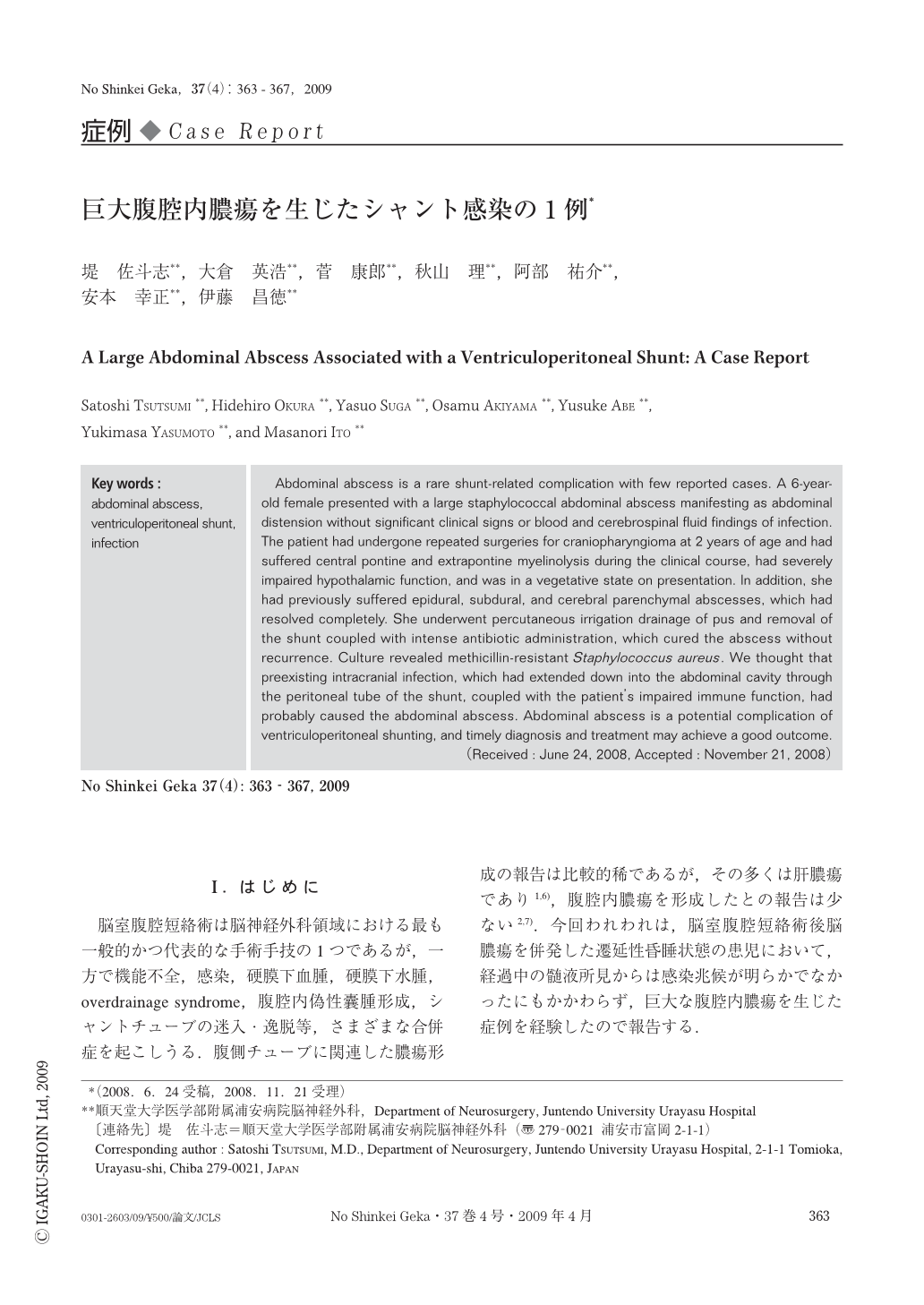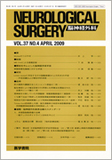Japanese
English
- 有料閲覧
- Abstract 文献概要
- 1ページ目 Look Inside
- 参考文献 Reference
Ⅰ.はじめに
脳室腹腔短絡術は脳神経外科領域における最も一般的かつ代表的な手術手技の1つであるが,一方で機能不全,感染,硬膜下血腫,硬膜下水腫,overdrainage syndrome,腹腔内偽性囊腫形成,シャントチューブの迷入・逸脱等,さまざまな合併症を起こしうる.腹側チューブに関連した膿瘍形成の報告は比較的稀であるが,その多くは肝膿瘍であり1,6),腹腔内膿瘍を形成したとの報告は少ない2,7).今回われわれは,脳室腹腔短絡術後脳膿瘍を併発した遷延性昏睡状態の患児において,経過中の髄液所見からは感染兆候が明らかでなかったにもかかわらず,巨大な腹腔内膿瘍を生じた症例を経験したので報告する.
Abdominal abscess is a rare shunt-related complication with few reported cases. A 6-year-old female presented with a large staphylococcal abdominal abscess manifesting as abdominal distension without significant clinical signs or blood and cerebrospinal fluid findings of infection. The patient had undergone repeated surgeries for craniopharyngioma at 2 years of age and had suffered central pontine and extrapontine myelinolysis during the clinical course, had severely impaired hypothalamic function, and was in a vegetative state on presentation. In addition, she had previously suffered epidural, subdural, and cerebral parenchymal abscesses, which had resolved completely. She underwent percutaneous irrigation drainage of pus and removal of the shunt coupled with intense antibiotic administration, which cured the abscess without recurrence. Culture revealed methicillin-resistant Staphylococcus aureus. We thought that preexisting intracranial infection, which had extended down into the abdominal cavity through the peritoneal tube of the shunt, coupled with the patient's impaired immune function, had probably caused the abdominal abscess. Abdominal abscess is a potential complication of ventriculoperitoneal shunting, and timely diagnosis and treatment may achieve a good outcome.

Copyright © 2009, Igaku-Shoin Ltd. All rights reserved.


